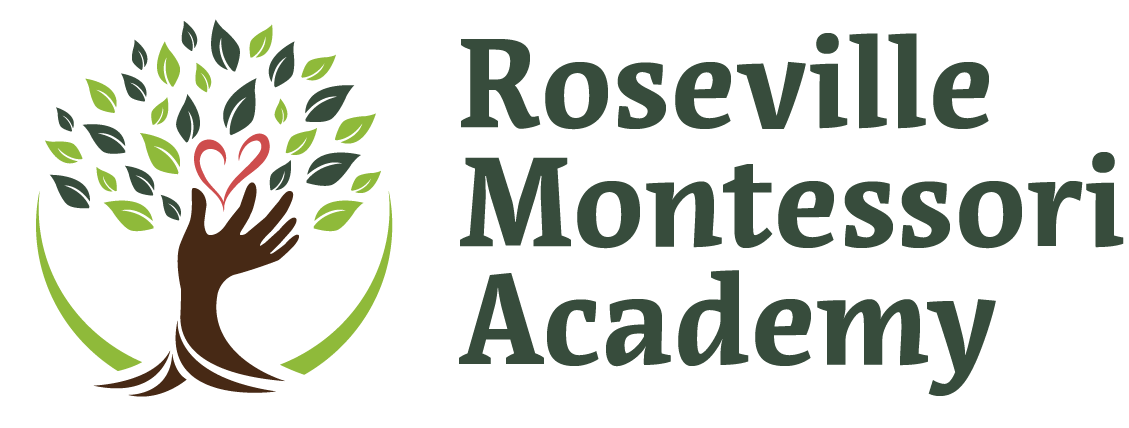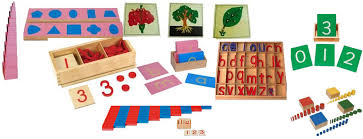Our Montessori Philosophy
The Montessori philosophy embraces the understanding of a child’s “absorbent mind” where from birth through approximately age 6, young children experience a period of intense mental activity that allows them to absorb learning from their environment without conscious effort, naturally and spontaneously.
Sensitive Periods are a critical time during human development when the child is biologically ready to be receptive to acquiring a specific skill or ability, such as the use of language or a sense of order. During this time, the child is particularly sensitive to stimuli that promote the development of that skill. A Montessori teacher prepares the classroom environment to meet the developmental needs of each sensitive period.
Our credentialed Montessori teachers work as a guide for the children. The qualities, skills and demeanor of the Montessori teacher responsible for meeting the needs of the young children are incredibly important during their early years of self-construction. This is a crucial time in which the children are absorbing experiences, making early decisions about the kind of people they are and gathering information about their world. They are developing basic trust in themselves and in their environment which will affect them for the rest of their lives.
A Montessori school, in many ways, is a cooperative community of young children. Working in a prepared environment with some general expectations and limits, each student is empowered to learn naturally, on their own, at their own pace. Children are nurtured and guided by experienced and credentialed Montessori teachers. Our classrooms include young children of mixed ages learning the importance of respecting the rights of others, the responsibility to help others, while nurturing their own individuality. Older students enjoy mentoring their younger classmates. Sometimes, the best teacher is someone who has recently mastered the task at hand. Younger students also look up to their older classmates and get a preview of the alluring work to come.
The materials the students use are didactic and self-correcting, allowing children to learn independently. The unique Montessori materials capture the child’s interest and help to develop important developmental skills, as well as, concentration and a longer attention span. Through independent and successful work in the Montessori Classroom children naturally build their self confidence and self-esteem.
Daily Student Objectives:
Enjoy and appreciate the process of exploration and learning.
Develop internal character and strength, and instill a natural lifelong love of learning.
Become adaptable and creative in how they learn and live.
Acquire the fundamental skills needed to communicate through words, numbers, and symbols.
Enjoy and gain satisfaction through various forms of artistic expression.
-
As a learning environment that fosters socially responsible citizens who are lifelong learners and problem solvers, Roseville Montessori Academy aspires to be a multicultural community with a welcoming spirit.
We seek to embrace and celebrate each person’s individuality, and recognize the full spectrum of cultural traditions and life experiences in our community. We invite each other to understand and value multiple perspectives, to identify and reject stereotypes and biases, and to work for equity and peace within the school and beyond.
The diversity we affirm includes but is not limited to race, ethnicity, national origin, creed, religion, sex, gender identity, sexual orientation, marital status, socioeconomic status, or ability. We uphold this commitment by being welcoming to all our families; by enriching our student body and staff from varied backgrounds; and by learning with our children how to become compassionate citizens of our world.
Nurturing a diverse community provides rich and tangible benefits to all our children. Honoring our unique stories and sharing our cultural traditions strengthens our school community and enriches our lives. Through these efforts to engage across differences, we connect in our shared humanity, and prepare our children for a lifetime of meaningful, peaceful relationships at home and in all the world.
“A great social mission that will ensure the child justice, harmony, and love remains to be accomplished. And this great task must be the work of education, for this is the only way to build a new world and bring peace.”
Maria Montessori, Education and Peace, 1949
-
Roseville Montessori Academy values diversity in every aspect of our school community. It is the policy of RMA not to discriminate in violation of the law on the basis of race, color, creed, religion, national origin, sex, marital status, status with regard to public assistance, sexual orientation or disability.
What is Montessori?
Montessori schools are based on the educational philosophy developed by Dr. Maria Montessori (1870 – 1952), which recognized the innate curiosity of children, and encouraged a natural style of learning through self-directed activities. The Montessori philosophy states that during the first six years of their life, children experience a series of “sensitive periods” when they are particularly open to new skills, abilities, and concepts. To best take advantage of this natural window for learning, and set the child on the course for life-long success, the Montessori philosophy encourages children to start school before the age of 4, and, ideally, as early as 3 years old.
The Purpose of a Montessori Education
Dr. Montessori believes that no human being is educated by another; that he or she must do it him / her self, or it will never fully be accomplished. A truly educated individual continues learning well beyond the hours and years spent in the classroom. He or she is motivated from within by a natural curiosity and love of knowledge.
Dr. Montessori felt that the goal of early childhood education shouldn’t be to fill a child with facts from a pre-selected, rigid course of study, but rather to simply cultivate the natural desire to learn. In the Montessori classroom, this is achieved in two ways: first by allowing the child to experience the excitement that comes with learning by his or her own choice, and second to help perfect the natural tools needed for lifelong exploration and learning.
Parents should understand that a Montessori School is not a typical pre-k or “play school” setting, as the child is not being prepared for a traditional kindergarten. Rather Montessori is a multi-year program designed to take advantage of the natural sensitive periods that occur between the ages of 3 and 6. A child who starts his or her education at a Montessori school has the advantage of acquiring basic reading and arithmetic skills naturally, without the boredom or discouragement.
How the Children Learn
The use of the Montessori materials is based on the young child’s unique aptitude for learning, which Dr. Montessori identified as the “absorbent mind.” In her writings, she frequently compared the young mind to a sponge, because it absorbs information from the environment. Acquiring information without conscious, tedious effort, makes learning a natural and delightful activity for the young child who employs all his senses to investigate his surroundings.
Since the child retains this ability to learn by absorption until he is almost seven years old, Dr. Montessori reasoned that childhood experience would be enhanced by a classroom in which the child handles materials that demonstrate basic educational information. Over sixty years of experience has proven her theory. A young child can learn to read, write and calculate in the same natural way that he learns to walk and talk.
The Sensitive Periods
Another observation of Dr. Montessori’s which has been reinforced by modern research is the importance of the sensitive periods for early learning. These are periods of intense fascination for learning in particular characteristic or skill, such as going up and down steps, putting things in order, counting or reading. It is easier for the child to learn a particular skill during the corresponding sensitive period than at any other time in his life. The Montessori classroom takes advantage of these periods by allowing the child freedom to select individual activities which correspond to natural periods of interest and readiness.
At What Ages?
A child can usually enter a Montessori classroom between the ages of 2 1/2 and 4 years, depending on when he or she is ready and comfortable in a classroom situation. He or she will begin with the simplest exercises, based on activities that all children enjoy. The equipment the child uses at 3 and 4 will help develop the concentration, coordination, and work habits necessary for more learning and exploration. Academic enrichment is provided at the child’s level of interest. With the use of Montessori materials, students receive instruction in reading, spelling, geography, social studies, grammar, science, botany, math, and a variety of elective subjects.
Why Early Learning?
Parents wonder why Montessori introduces subjects such as grammar, geography, and math to preschool-age children. Our answer is, even at that age youngsters can joyfully absorb many difficult concepts if they meet them in a concrete form. In fact, if these difficult concepts are presented at an early age in a tangible manner, some of the common stumbling blocks encountered in the middle-elementary school grades can be avoided.
For example, in a Montessori classroom, a unit of fraction is not simply a number on paper. It is something that the child can hold in her hand. A verb is not just a word on paper; it is something that he or she can act out. In similar fashion, the child can pour water around an island or form a square with five rows of five beads each. The materials that make these concepts tangible ultimately serve as memory touchstones when the child encounters the terms in the future.
What Happens After Montessori?
The habits and skills that a child develops in a Montessori classroom are good for a lifetime, whether a student continues his or her education in another Montessori program. He or she will work more efficiently, observe more carefully, and concentrate more effectively. Self-education — the only real education — will continue.



